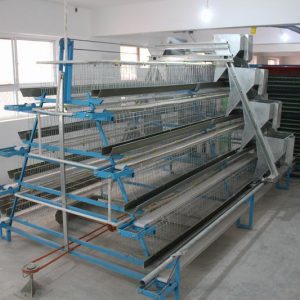Summer is coming soon. In the high temperature and high humidity in summer, the chicks are often under heat stress, and their feed intake drops significantly, resulting in insufficient intake of various nutrients, which affects the health and production performance of laying hens. Under this situation, reasonable adjustment of feed nutrition levels and feeding methods is also an effective means to improve the performance of chickens in summer.
1. Increase energy
Adding fat to the feed can change the palatability of the feed, extend the residence time of the feed in the digestive tract, and increase the feed intake and digestion and absorption of laying hens. The amount of fat added to the feed during heat stress is preferably 2-3%, and the corresponding amount of corn is reduced by 4-6%, but the fat is easily oxidized and deteriorated, so when adding fat to the diet, antioxidants such as B Oxyquine.
2. Protein raw materials cannot be too high
In heat stress, the traditional way is to make up for the lack of protein intake of laying hens by increasing the content of crude protein raw materials in the feed, but the protein metabolism produces far more calories than carbohydrates and fats, increasing the body’s metabolic heat Accumulation, so when adjusting the feed formula, the content of protein raw materials should not be increased, but should be appropriately reduced. Therefore, it is recommended to reduce the amount of raw materials with low protein utilization rate such as miscellaneous meal in the diet, appropriately reduce the amount of animal protein feed such as fish meal, and increase the raw material with high protein content and high utilization rate such as soybean meal, but should not increase the total amount of protein raw material .
In order to improve the utilization rate of protein and ensure its nutritional needs, essential amino acids should be added according to the dietary amino acid situation. Some studies have found that methionine and lysine can alleviate heat stress. Add 10-15% on the basis of the diet to make them add 360 mg of methionine and 720 mg of lysine per chicken per day, and pay attention to maintaining the balance of amino acids.
3. Adjustment of minerals
Heat stress can affect the quality of the eggshell (the eggshell becomes thinner and more brittle), so the proportion of calcium and phosphorus in the summer diet formula should be adjusted according to the extent of the decrease in feed intake. If the calcium and available phosphorus levels in other seasons are 3.5% and 0.36% respectively, the calcium and available phosphorus levels should be adjusted to 3.8% and 0.39% or more. In principle, the calcium adjustment level should not exceed 4%, and the effective phosphorus adjustment level should not exceed 0.42%, because excessively high levels of calcium can cause high osmotic pressure in the intestinal environment, leading to diarrhea. Attention should also be paid to the supply particle size of the calcium source, preferably 2/3 is granular (the small fingernail is divided into four halves), and the phosphorus source is preferably a granular phosphorus source.
In addition, under heat stress, the excretion of minerals in feces and urine will increase. Heat stress will affect the absorption of Mn, S, Se, Co, Mg and other ions, and the demand for them increases, so the content in the feed should be increased according to the reduction in dietary intake.
4. Adjustment of vitamins
Heat stress has a greater effect on the absorption of vitamin E, vitamin C and B vitamins, and the amount added in summer should be adjusted to 2-3 times the normal amount. Because VC has an important relationship with eggshell formation, it should be added at least 200 g / ton.
5. Adjust electrolyte balance
The added concentration of potassium chloride is generally 0.15-0.30%. At the same time, adding 0.3-0.5% baking soda to the feed can reduce the defective eggs by 1-2%, increase the egg production rate by 2-3%, increase the thickness of the eggshell, and improve the utilization of protein in the diet, but it should be appropriately reduced The amount of salt.
6. Add feed to relieve heat and anti-stress drugs
Add “Qianqiang San” to the feed to tonify qi and blood, relieve liver and blood stasis, remove dampness and detoxify, strengthen chicken mass and improve body immunity; promote local ovarian blood circulation, reduce hen physical overdraft, increase egg production rate and prolong Peak egg production, reduced feed-to-egg ratio, increased egg weight, and improved egg quality.
The above is the specific content of how to adjust the feed for laying hens in summer. In short, the heat stress caused by the high temperature environment in summer to laying hens is extremely significant. Long-term heat stress will cause the body’s immunity to decline, causing disease and seriously affecting The production performance and benefits of laying hens are coming to summer, and farmers must pay attention!

